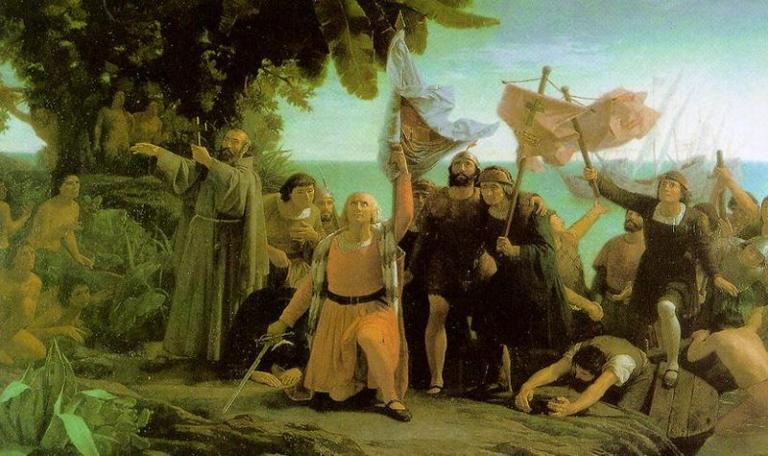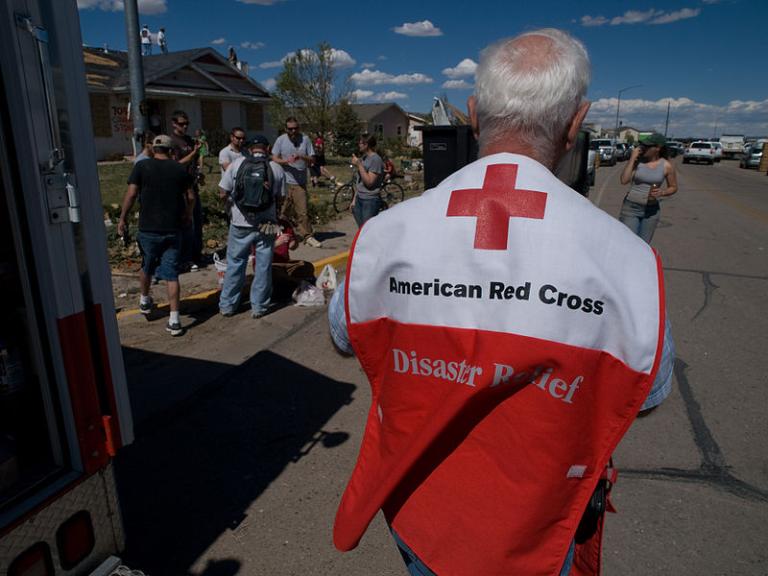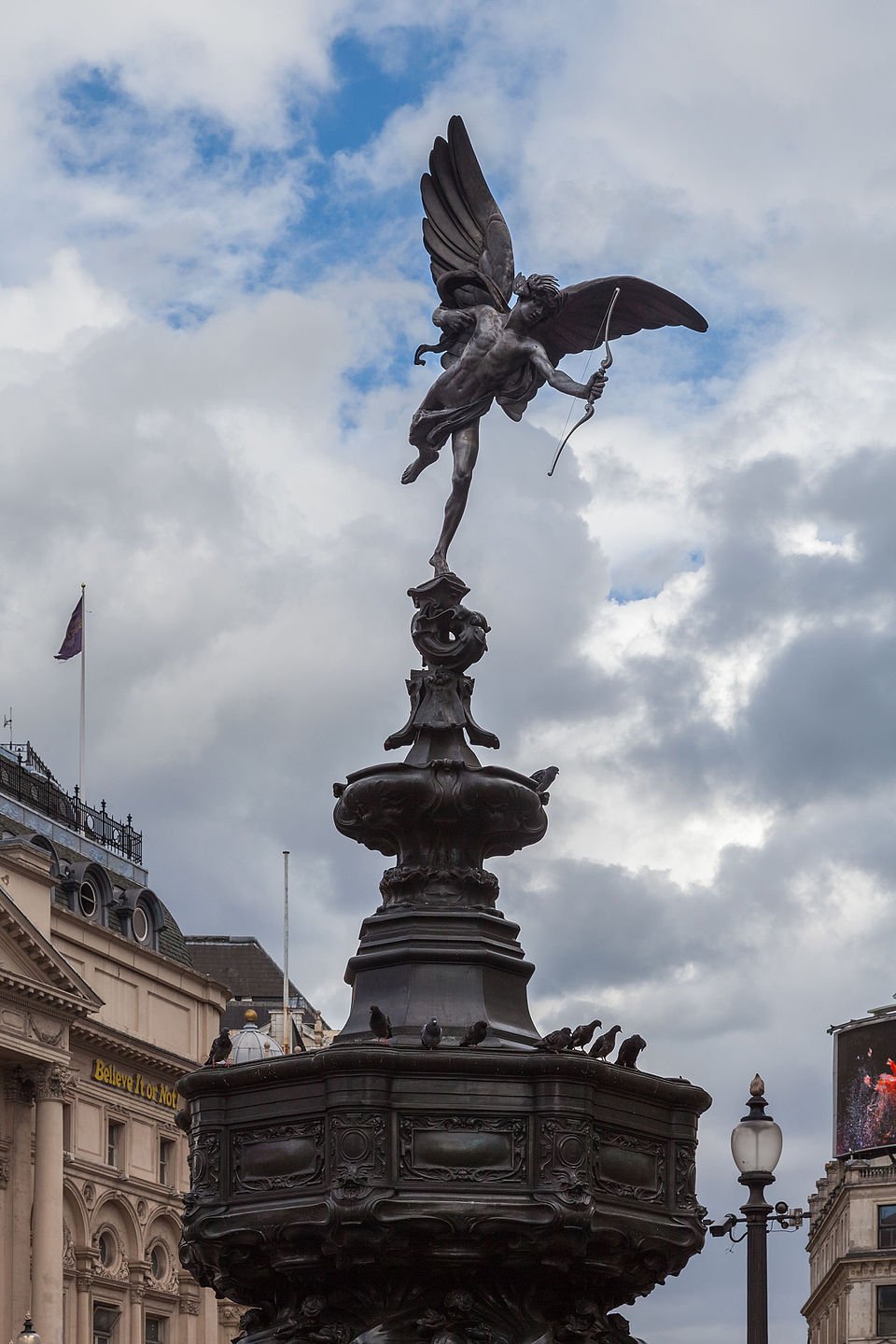
This item has just been posted on the fossilized and entirely static website of the Interpreter Foundation: “Seek Ye Words of Wisdom: “Columbus among the Lamanites,” written by Andrew H. Hedges:
Part of our book chapter reprint series, this article originally appeared in Seek Ye Words of Wisdom: Studies of the Book of Mormon, Bible, and Temple in Honor of Stephen D. Ricks, edited by Donald W. Parry, Gaye Strathearn, and Shon D. Hopkin. For more information, go to https://interpreterfoundation.org/books/seek-ye-words-of-wisdom/.
“Students of the Book of Mormon have long realized that the Nephite record is not necessarily a record of everything that happened in North and South America between 600 BC and AD 400. Internal evidence from the text itself makes it clear that the vast majority of events related in the book took place in a fairly limited area, even while allowing for the possibility that the Nephite “interaction sphere” may have been quite extensive. This has resulted in numerous authors over the years making their case that one or another of a variety of peoples and cultures—known today through archaeological remains—living in the Americas during Book of Mormon times were the Nephites and Lamanites of the text.”
Please note that today is Thursday, not Friday, and that this is not a new article in our journal but, rather, part of our book chapter reprint series. New journal articles appear on Fridays, not on Thursdays. Chapter reprints appear on Thursdays, not on Fridays. Some time back, one unfortunate reader became confused, disoriented, and wildly indignant when he mixed the two up in his mind, accusing us of fraud and deception. Don’t be that guy.

I believe in free markets, and I’m opposed both to socialism and to mercantilism (or neo-mercantilism), the latter of which, until recently, I had happily believed to be extinct. So I’m pleased to see reports such as this one out of Argentina: “The Milei ‘Miracle’ Is a Vindication of Free Markets.” The results of Mr. Milei’s reforms are pretty much what I would have expected; I’m surprised, after so many “experiments” have been successfully conducted, that so many people seem still to be surprised at the results.

I’ve been told on multiple occasions throughout my now absurdly long life that, while religious people like me dream of pie in the sky when we die, secular people (such as those addressing and accusing me) care about making this world, the real world, a better place. “Religion is the opiate of the people,” Karl Marx famously complained. Elsewhere, he remarked that, while “philosophers have said that the purpose of philosophy is to understand the world, the purpose is to change it” — which, I think we (and its scores of millions of victims) can all agree, Marxism certainly did. Religion, in Marx’s view, was a distraction from the real business of making this world a better place.
And, of course, the critics of religious belief with whom I’ve spoken on this subject may well be far better people than I am — that’s a pretty low bar to clear, after all — and it’s certainly possible that they’re giving vast proportions of their time and wealth and energy to serve humanity.
On the whole, though, research seems to indicate that, both historically and currently, religious people (supposedly focused like lasers on another world rather than this one) give substantially more of their time, effort, and financial resources to alleviating evils in this life. One need only think of such foundations as the large networks of Catholic and Seventh-Day Adventist hospitals, the New York Presbyterian system, the former Latter-day Saint hospital system in the Intermountain West; of the role that Christian care for the sick and dying played in the emergence of Christianity across the ancient Mediterranean (as chronicled, for example, by the late Rodney Stark in The Rise of Christianity); of Christian medical missionaries, and the like, to sense the truth of this. The Swiss businessman Henry Dunant, who conceived of what became the International Red Cross, was a devout Christian. Clara Barton, who founded the American Red Cross, was a devout Christian. The British parliamentarian William Wilberforce, leader of the movement to abolish the Atlantic slave trade, was a devout Christian. The English slave ship captain John Newton became a minister and an abolitionist after his conversion to Christianity, as he described in a justly famous hymn that, I’m delighted to say, will shortly be included in the official hymnal of the Church of Jesus Christ of Latter-day Saints:
That saved a wretch; like me!
I once was lost, but now am found,
Was blind, but now I see.2.’Twas grace that taught my heart to fear,
And grace my fears relieved;
How precious did that grace appear
The hour I first believed!3.The Lord hath promised good to me,
His word my hope secures;
He will my shield and portion be
As long as life endures.4.When we’ve been there ten thousand years,
Bright shining as the sun,
We’ve no less days to sing God’s praise
Than when we first begun.
Arthur C. Brooks’s 2006 volume, Who Really Cares: The Surprising Truth about Compassionate Conservatism, made it much, much harder for secularists to preen themselves, as a class, on their superior compassion. And many more articles and books making the same case have appeared since then.
Religious people, it turns out, give more to charity than do nonreligious people. They donate more money — and not merely to their churches, synagogues, temples, and mosques. “Religious people,” wrote Brooks, “are more charitable in every measurable nonreligious way — including secular donations, informal giving, and even acts of kindness and honesty — than secularists.” They’re more likely to give money to family and friends, and, when they do, to give larger amounts. They’re more likely to volunteer and to give blood. Even non-churchgoers, if they were raised in religious households, are more likely to donate to charity than those who were not.
In the aftermath of the terrible flood in Texas, I’ve seen angry secularists denouncing those who speak of “keeping the victims [of the disaster] in our thoughts and prayers” — and even verbally assaulting and mocking the God in whom they don’t believe. Rather, they say, we should be looking at ways to prevent such catastrophic losses of life and to take real steps to help those who have been affected, as if prayer and this-worldly measures are, somehow, diametrically opposed, forcing an either/or choice. Clearly, though, they aren’t.
And, although I can’t know for certain, I’m relatively confident that a sizable proportion of those who are out there searching, under appalling conditions, for the victims of the flooding along the Guadalupe River are believing Texas Baptists and faithful Texas Catholics. How many of them are members of American Atheists? How many are dues-paid members of the Freedom From Religion Foundation? I really couldn’t say. But I’ll bet there aren’t many.

Here are a trio of horrifying stories that have recently been retrieved from the Christopher Hitchens Memorial “How Religion Poisons Everything” File™:
“The Church Assists with Humanitarian Needs in the Marshall Islands”
Posted from Canmore, Alberta, Canada











